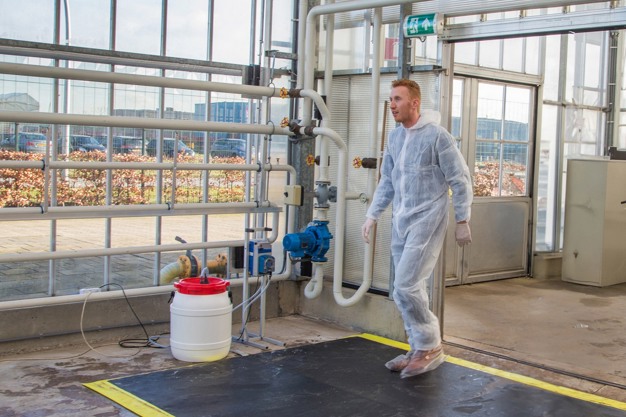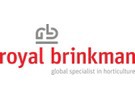Aren't we too clean and therefore too vulnerable to diseases, bacteria, and fungi? This question is coming up more and more often in professional greenhouse horticulture. For example, in recent months in combination with the problems in pepper cultivation where large-scale plant failures can often occur. Then come examples of growers who have no drain sanitizer at all and also no problems with plant failure. Jan Willem Keijzer, Hygiene Specialist at Royal Brinkman, shares his views.
Jan Willem Keijzer
"In the almost 19 years that I have been active in horticulture, a lot has changed," says Jan Willem. "Farm hygiene has become increasingly important. The impact of problems like Crazy Roots in tomatoes and the cucumber fur virus has become much smaller. Here, a combination of different hygiene actions and measures plays a crucial role."
"We are now in the middle of the transition to greening and resilient growing. In the future, we will have fewer resources at our disposal. That calls for a critical look at existing practices. I would rephrase the question 'Aren't we too clean?', towards resilient growing."
At what point does a hygiene measure become the limiting factor for resilient growth?
One thing is certain, according to Jan Willem: hygiene measures remain rock-solid necessary in professional greenhouse farming. "If you have a virus in the water, you want to be able to render it harmless with a drain disinfectant. After the crop rotation, you want to start clean and the side effects of disinfection (on, for example, tripods) are also nice."
"However, we don't want to negatively affect the balance of 'soil life' in the mat or soil with a hygiene measure. An example: hydrogen peroxide should keep the pipe system clean, prevent oxygen from sinking, and prevent the spread of pathogens. But an after-effect on beneficial bacteria or fungi in the growing medium is undesirable."
"We have more and more expertise around the success of resilient cultivation, but we also still have a lot to discover together in the sector in this area," he continues. "Because it is also challenging, with fewer and fewer resources. We do this together, and we need everyone within the sector to make this possible. Resilient growing is not just about the integrated approach (biological and chemical crop protection products). We need to turn many more knobs. We call this Integrated Crop Management (ICM). Within Royal Brinkman, we have developed a broad ICM system approach for resilient growth. Here, hygiene is just one of 15 areas of knowledge, which we connect through data."
"Yes, I think we have become too clean in some situations in professional greenhouse farming," Jan Willem states. "However, let's not forget to look back at why these measures were introduced. To then take a fresh, critical look at the possibilities of accelerating towards resilient growth in the future. I am personally passionate about this."
For more information:
Royal Brinkman
[email protected]
www.royalbrinkman.nl
